Managing your business expenses is crucial for success. It helps you understand where your money is going, allows you to make informed decisions, and ensures you stay compliant with tax laws. In this article, we will explore effective ways to keep track of your business expenses, helping you build a solid financial foundation for your company.
Key Takeaways
- Organize all financial documents, whether paper or digital, to avoid losing important records.
- Use the right tools and software to automate your expense tracking and save time.
- Keep personal and business finances separate to simplify bookkeeping and ensure accuracy.
Organizing Your Financial Records Like a Pro
The Art of Filing: Paper vs. Digital
So, you’ve got receipts piling up like laundry? Time to tackle that mess! You can choose between the classic paper filing system or go digital. Here’s a quick breakdown:
| Method | Pros | Cons |
|---|---|---|
| Paper | Tangible, no tech issues | Clutter, easy to lose |
| Digital | Organized, easy access | Tech glitches, requires setup |
Pick what works for you, but remember: organization is key!
Why Consistent Bookkeeping is Your Best Friend
Let’s be real, keeping your books in check is like having a loyal sidekick. It helps you:
- Save time during tax season
- Spot errors before they become disasters
- Make informed decisions based on accurate data
Consistency is your secret weapon! Regularly updating your records means less stress later.
Capturing Every Penny: No Expense Left Behind
Every cent counts, right? Here’s how to ensure you capture all your expenses:
- Record expenses immediately – don’t wait until the end of the month!
- Categorize them – it makes tracking easier.
- Keep receipts – even for small purchases. You never know when you might need them!
By mastering the art of expense tracking, you’ll be on your way to financial clarity and success. Remember, no expense is too small to track!
Mastering the Tools of the Trade
Choosing the Right Software for Your Business
When it comes to managing your business expenses, choosing the right software is crucial. You want something that fits your needs like a glove. Here are a few options to consider:
- QuickBooks: Great for small to medium businesses, it offers a user-friendly interface.
- FreshBooks: Perfect for freelancers and service-based businesses, it simplifies invoicing and expense tracking.
- Wave: A free option that’s surprisingly robust for small businesses.
Automating Expense Tracking: Your New Best Friend
Let’s face it, manual tracking is a pain. Automating your expense tracking can save you time and headaches. Here’s how:
- Set up automatic imports from your bank accounts.
- Use apps that scan receipts and categorize expenses for you.
- Schedule regular reviews to keep everything in check.
By automating, you can focus on what really matters—growing your business!
The Perks of Going Paperless
Going paperless isn’t just trendy; it’s smart! Here’s why:
- Less clutter: Your workspace will thank you.
- Easier access: Find documents in seconds instead of sifting through piles of paper.
- Cost-effective: Save on printing and storage costs.
Going paperless is not just about saving trees; it’s about saving your sanity!
And remember, if you want to get started on the right foot, get your free Excel spreadsheet for business expenses. This free Excel spreadsheet for businesses expenses will help you track your expenses and stay on top of business finances!
Strategies for Effective Expense Management

Setting Spending Limits: When Less is More
Setting spending limits is like putting a seatbelt on your finances. It keeps you safe from overspending and helps you stay on track. Here’s how to do it:
- Identify your essential expenses – Know what you absolutely need to spend on.
- Set a realistic budget – Don’t go too tight; allow some wiggle room for fun.
- Monitor your spending – Keep an eye on where your money goes each month.
The Importance of Regular Financial Check-Ups
Just like you visit the doctor for a check-up, your finances need regular attention too! Schedule monthly reviews to:
- Analyze your spending patterns.
- Adjust your budget as needed.
- Spot any unusual expenses that could be sneaking in.
How to Spot and Stop Unnecessary Expenses
You’d be surprised how many unnecessary expenses can creep into your budget. Here’s how to spot them:
- Review your subscriptions – Are you still using that streaming service?
- Check for duplicate payments – Did you accidentally pay the same bill twice?
- Ask yourself if each expense is truly necessary – If not, cut it out!
Remember, every dollar saved is a dollar earned! Keeping track of your expenses can lead to significant savings over time.
By implementing these strategies, you’ll not only keep your expenses in check but also pave the way for a healthier financial future. Happy budgeting!
Keeping Personal and Business Finances Separate

Why Mixing Finances is a Recipe for Disaster
Let’s face it, mixing your personal and business finances is like trying to mix oil and water – it just doesn’t work! Keeping them separate is crucial for a smooth financial ride. When you use personal accounts for business expenses, you’re setting yourself up for a chaotic bookkeeping nightmare. You’ll have to sift through a mountain of transactions come tax time, and trust me, the IRS won’t be impressed with your mixed-up records.
Opening a Business Bank Account: The First Step
So, what’s the first step to financial clarity? Open a dedicated business bank account! This simple act can save you a ton of headaches. Here’s why:
- Simplifies bookkeeping: You’ll only deal with business transactions.
- Professional image: Clients and vendors will take you more seriously.
- Tax time made easy: No more hunting for personal expenses in your business records.
Using Business Credit Cards Wisely
Now that you’ve got your business bank account, consider getting a business credit card. This can help you keep track of expenses even better. Here are some perks:
- Rewards: Earn cashback or points on business purchases.
- Expense tracking: Easier categorization of your spending.
- Building credit: Establish a credit history for your business.
Remember, keeping your personal and business finances separate isn’t just about organization; it’s about protecting your personal assets and ensuring your business runs smoothly. Start today, and you’ll thank yourself later!
Wrapping It Up: Your Financial Health Matters!
So there you have it! Keeping track of your business expenses doesn’t have to feel like a chore. By organizing your receipts, entering data regularly, and keeping your personal and business finances separate, you can make your financial life a whole lot easier. Plus, using tools like accounting software can save you time and headaches, especially when tax season rolls around. Remember, it’s all about being smart with your money. With a little effort, you’ll not only stay on top of your expenses but also set your business up for success. So, grab those receipts, get organized, and watch your financial health thrive!
Frequently Asked Questions
Can I use my personal bank account for my small business expenses?
While you can use a personal account for business expenses, it’s not a good idea. Having a separate business bank account makes it easier to track expenses, simplifies tax time, and looks more professional.
What’s the best way to track mileage expenses for my business?
The easiest way to track mileage is by using a mileage tracking app that uses GPS to log your trips automatically. You can also keep a logbook with details like the date, destination, purpose, and miles driven for each trip.
How long should I keep my business expense records and receipts?
The IRS suggests keeping business records and receipts for at least three years after you file your tax return. In some cases, like property expenses, you might need to keep them for up to seven years.







